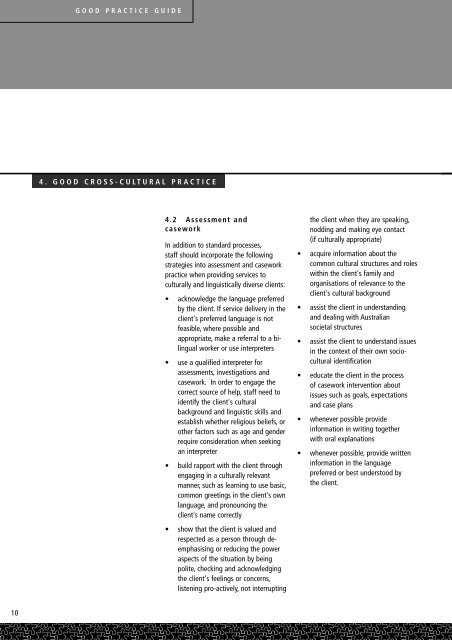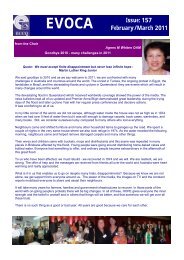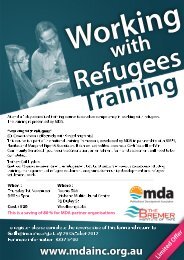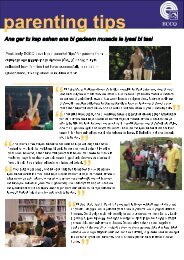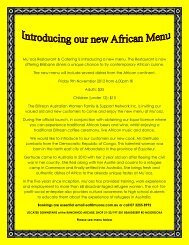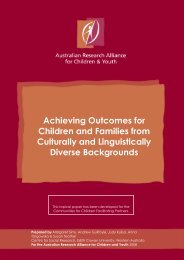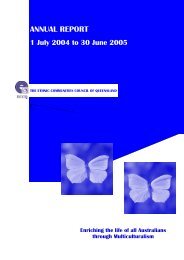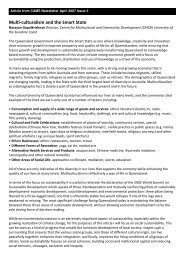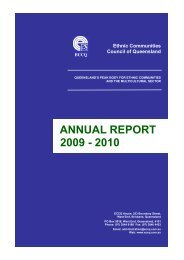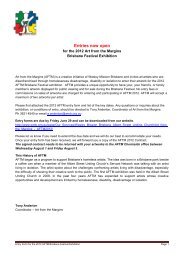Good Practice Guide
CALD Good practice guide
CALD Good practice guide
You also want an ePaper? Increase the reach of your titles
YUMPU automatically turns print PDFs into web optimized ePapers that Google loves.
GOOD PRACTICE GUIDE<br />
4. GOOD CROSS-CULTURAL PRACTICE<br />
4.2 Assessment and<br />
casework<br />
In addition to standard processes,<br />
staff should incorporate the following<br />
strategies into assessment and casework<br />
practice when providing services to<br />
culturally and linguistically diverse clients:<br />
• acknowledge the language preferred<br />
by the client. If service delivery in the<br />
client's preferred language is not<br />
feasible, where possible and<br />
appropriate, make a referral to a bilingual<br />
worker or use interpreters<br />
• use a qualified interpreter for<br />
assessments, investigations and<br />
casework. In order to engage the<br />
correct source of help, staff need to<br />
identify the client's cultural<br />
background and linguistic skills and<br />
establish whether religious beliefs, or<br />
other factors such as age and gender<br />
require consideration when seeking<br />
an interpreter<br />
• build rapport with the client through<br />
engaging in a culturally relevant<br />
manner, such as learning to use basic,<br />
common greetings in the client's own<br />
language, and pronouncing the<br />
client's name correctly<br />
• show that the client is valued and<br />
respected as a person through deemphasising<br />
or reducing the power<br />
aspects of the situation by being<br />
polite, checking and acknowledging<br />
the client's feelings or concerns,<br />
listening pro-actively, not interrupting<br />
the client when they are speaking,<br />
nodding and making eye contact<br />
(if culturally appropriate)<br />
• acquire information about the<br />
common cultural structures and roles<br />
within the client's family and<br />
organisations of relevance to the<br />
client's cultural background<br />
• assist the client in understanding<br />
and dealing with Australian<br />
societal structures<br />
• assist the client to understand issues<br />
in the context of their own sociocultural<br />
identification<br />
• educate the client in the process<br />
of casework intervention about<br />
issues such as goals, expectations<br />
and case plans<br />
• whenever possible provide<br />
information in writing together<br />
with oral explanations<br />
• whenever possible, provide written<br />
information in the language<br />
preferred or best understood by<br />
the client.<br />
10


